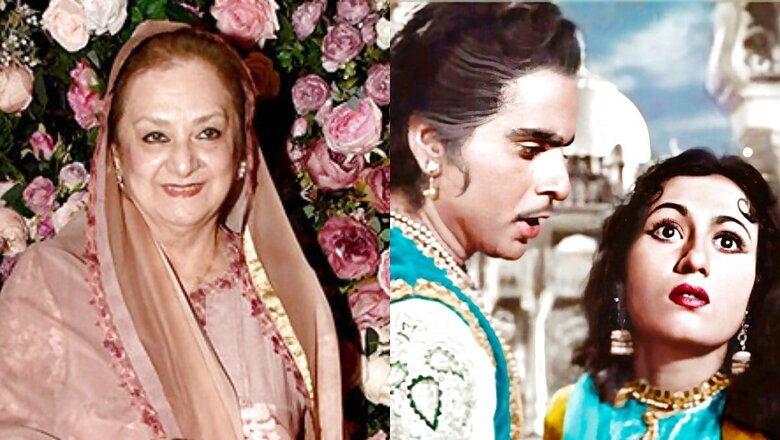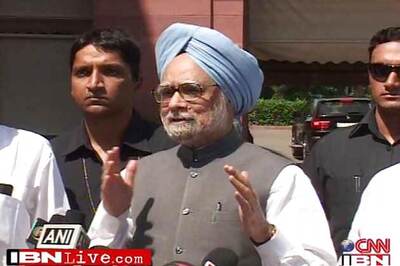
views
More than six decades have passed since K Asif’s Mughal-e-Azam was released on the big screen, and it remains to be of the grandest films to have been made in Bollywood. The cast of Dilip Kumar, Madhubala, and Prithviraj Kapoor gave us the iconic film that is still celebrated and remembered, 63 years after its release. To enshrine this big moment, Dilip Kumar’s wife and veteran actress Saira Banu celebrated the film’s legacy with an overwhelming note, highlighting how it forms an essential part of the history of Indian cinema.
On Saturday, Saira Banu shared a nostalgic montage of some of the best scenes from Mughal-e-Azam. Along with the montage, there was also a very special speech that was delivered by Dilip Kumar on the occasion of the release of the colourized version in 2004. However, it was her note that captured everyone’s attention. She wrote in the caption, “In the history of Indian cinema, no movie has left as profound a mark on the hearts of audiences as “Mughal-e-Azam.” This magnum opus, directed by the visionary K. Asif, stands as a timeless testament to the splendor of Indian filmmaking. At its very core lies the captivating performance of Sahib, whose portrayal added an extra layer of brilliance to the film.”
She further expressed her admiration towards Dilip Kumar’s stellar performance in the legendary film,”Sahib’s portrayal of Prince Salim was nothing short of mesmerizing. His ability to infuse life into the character, whether in moments of tender romance or fierce rebellion, was a sight to behold. His powerful performances created a symphony of emotions that echo in the hearts of the audience to date,” her note read.
Saira Banu also went on to add,
“Mughal-e-Azam transcends the boundaries of time, effortlessly transporting viewers to the opulent era of the Mughal dynasty. The film’s journey to completion was no less than an epic saga itself, spanning an astonishing ten years. The attention to detail in every aspect of the movie, from the breathtakingly majestic ‘Sheesh Mahal’ set to timeless musical melodies such as ‘Thumri’ Mohe Panghat Pe and ‘Qawaali’ Teri Mehfil Mein, created by Naushad, to the intricate and aesthetically captivating costumes, showcased nothing less than brilliance.”
“The movie still remains a beacon of cinematic brilliance, reminding us of the artistic heights that Indian cinema can attain. It continues to inspire generations of filmmakers and actors, serving as a reminder that true artistry knows no bounds and stands the test of time. Celebrating #63YearsOfMughalEAzam,” concluded Saira Banu in her lovely note.
Before Sanjay Leela Bhansali stepped into making magnum-opus movies like Padmavat, Bajirao Mastani, Indian cinema had Mughal-E-Azam. Directed by K. Asif, the movie was completed in ten years. The 1960 epic historical drama was one of the first blockbusters of Indian cinema. It traced the story of Emperor Akbar, his son Salim and the graceful Anarkali played by iconic Madhubala. The film explores the differences between father and son, class difference and the courage and struggles of royal love stories. Dilip Kumar essayed the role of Salim, alongside Prithviraj Kapoor’s Akbar and Madhubala’s Anarkali.


















Comments
0 comment